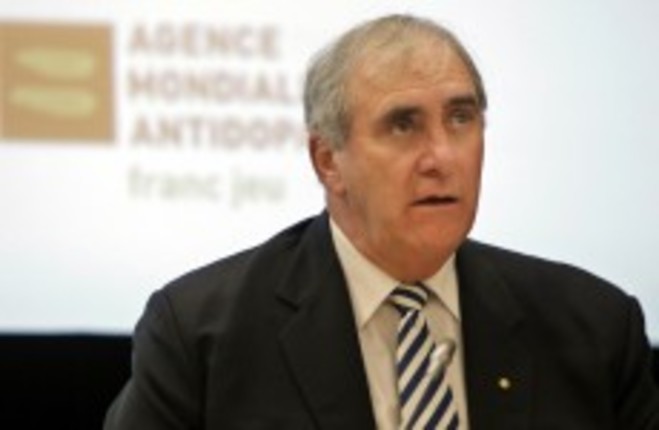DRUG USE IS widespread in Australian sport with growing links to organised crime, according to a damning official probe Thursday that points to “clear parallels” with the Lance Armstrong case.
The Australian Crime Commission inquiry identified common use of prohibited substances including peptides — a type of stimulant — hormones and illicit drugs, across multiple sporting codes.
The findings from the year-long investigation shatter Australia’s reputation as a predominantly drugs-free sporting nation, although specific players, teams and codes were not revealed for legal reasons.
“It’s a very black day for sport,” World Anti-Doping Agency president John Fahey, an Australian, told Sky News.
“The enormity of what we’re hearing, that surprises me.”
The report indicated that sports scientists, coaches and support staff as well as doctors and pharmacists were involved in the provision of drugs, which were often supplied by organised criminal gangs.
In some cases, players were being administered with substances that have not yet been approved for human use.
“The findings are shocking and will disgust Australian sports fans,” Home Affairs Minister Jason Clare said of a nation where sport is hugely popular and the country’s teams routinely punch above their weight on the global stage.
“Multiple athletes from a number of clubs in major Australian sporting codes are suspected of currently using or having previously used peptides, potentially constituting anti-doping rule violations.
“Officials from clubs have also been identified as administering, via injections and intravenous drips, a variety of substances.
“It’s cheating but it’s worse than that, it’s cheating with the help of criminals,” he added.
The report said there were “clear parallels between what has been discovered in Australia and the USADA (US Anti-Doping Agency) investigation into Lance Armstrong”, referring to the disgraced Tour de France cyclist.
This “underlines the transnational threat posed by doping to professional sport, both from a ‘fair play’ perspective and as a broader integrity issue”.“It is also clear from the findings of this project, the USADA investigation, and previous high-profile doping cases in Europe and the United States, that it is not only athletes who are involved in doping, but athletic support staff, organised criminal groups and complicit doctors.”
The report said criminal networks were increasingly involved in the distribution of illegal substances, and the links may have led to match-fixing and fraudulent manipulation of betting markets.
Crime Commission boss John Lawler said the threat of match-fixing was “extraordinarily serious” with organised crime involved.
“Organised crime has many facets. It will go to where there is lucrative profits to be made, low risk, regulatory weakness, and they will exploit those vulnerabilities,” he said.
While the probe did not name specific sports, Cricket Australia chief James Sutherland and his Football Federation Australia counterpart David Gallop said their sports were not implicated in the report.
But rugby league boss Dave Smith revealed players and clubs were being investigated.
“Information has come forward for NRL (National Rugby League) specifically that affects more than one player and more than one club,” Smith told reporters.
Sports Minister Kate Lundy said all sports had committed to work with the government, the Australian Sports Anti-Doping Authority (ASADA) and law enforcement agencies to restore confidence in sport.
“This week the government introduced legislation to strengthen ASADA’s powers to enable the full and unhindered investigation of these issues,” she said.“If persons of interest refuse to cooperate with ASADA investigations they will be liable for civil penalties.”
She added that all major professional sports would establish integrity units to deal with doping, betting and ethical issues.

